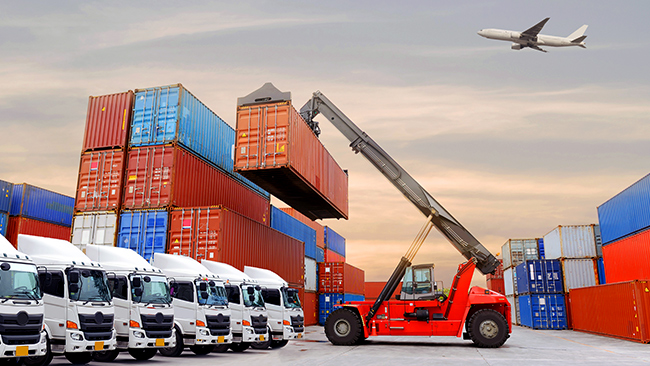

On January 4, 2020, a container ship called; COSCO PACIFIC; owned by COSCO Shipping suddenly caught fire and emitted smoke while in transit, resulting in damage to the carrier and the cargo of the shipper due to the burnt container bottom. The main cause of the accident was the shippers failure todeclare dangerous goods. Industry insiders have raised a thought-provoking question about this incident, and in my opinion, it is necessary to discuss it in different scenarios. That is, if the shippers failure to declare dangerous goods resulted in cargo damage in this incident, should the freight forwarder be held liable, and what is the legal basis for this?
Despite different opinions online regarding this issue, from a rigorous perspective, one cannot simply answer 'yes' or no to this question. I will explain this issue from the following levels, in order to provide relevant guidance to those engaged in related industries.
(1) Freight forwarders are aware
The first question that must be answered is whether the freight forwarder was aware of the shipper's failure to declare dangerous goods. If the freight forwarder was aware and acted or failed to act recklessly or intentionally, thereby causing the accident, they not only need to bear corresponding civil liability but may also face criminal liability depending on the severity of the accident. (The shipper may also bear the same responsibility in this case.) Therefore, if the freight forwarder was aware and acted accordingly, there is no room for discussion. Our main focus is on whether the freight forwarder should bear legal responsibility when they are unaware of the situation.
(2) Freight forwarders are unaware
If the freight forwarder is unaware of the shipper's false declaration of dangerous goods, then there are three possible situations to consider.
①The freight forwarder signs the transport contract with the carrier as an agent of the shipper.
In this case, the freight forwarder is acting as the shipper's agent. During the process of signing the contract with the carrier, the freight forwarder presents the necessary qualifications and certificates (such as a special agent seal for the entrusted contract) to prove the legality of acting as an agent for the goods. The carrier is actually signing the transport contract with the shipper, and if the freight forwarder can prove that they were unaware of the false declaration, they will not be held responsible for compensation. This is because the freight forwarder has no direct connection to the transportation of the goods in question and is not liable for compensation.
②The freight forwarder appears as a non-vessel operating common carrier (NVOCC).
In this case, the freight forwarder's identity is still that of an NVOCC. When dealing with the shipper, their identity is that of the carrier, and when dealing with the actual carrier, their identity is that of the consignor. Therefore, the NVOCC is a party to two independent and unrelated contracts for the transport of goods by sea. When the shipper falsely declares dangerous goods to the NVOCC, causing damage to the actual carrier, the actual carrier can claim compensation from the NVOCC. After the NVOCC compensates the actual carrier, they can seek recourse against the shipper based on the transport contract between the NVOCC and the shipper.

③The freight forwarder signs the transport contract with the carrier as an independent contracting party.
In this case, the freight forwarder is an independent contracting party. In the practice of sea transport of goods, sometimes the freight forwarder signs an entrusted agency contract with the shipper to act as their agent for shipping a batch of goods, and then signs a transport contract with the carrier in their own name. At this point, the freight forwarder is a party to two contracts and has not provided any qualifications or certificates of agency to the carrier. The carrier has no knowledge of the freight forwarder's other layer of entrusted agency relationship. In this case, if the shipper falsely declares dangerous goods to the freight forwarder, who then passes them on to the carrier and causes damage, the freight forwarder will be held responsible for compensation. This is because, based on the relativity of contracts, the freight forwarder cannot use an existing entrusted agency contract to confront another independent transport contract they have signed. They can only seek to recover their losses by claiming their rights against the shipper after compensating for the damage. However, if the freight forwarder chooses not to "resist", according to Article 926 of China's Civil Code, they must disclose the principal to the carrier. The carrier can then choose either party to bear the corresponding compensation responsibility, and once the relative party is chosen, it cannot be changed (in judicial practice, carriers generally sue both parties together).
Currently, some companies deliberately falsify dangerous goods declarations to make a profit, and some freight forwarders "tolerate" or even assist in such behavior for profit, even in cases where they know that false declarations are being made. This is obviously a behavior that takes huge risks for small profits. In the process of handling related cases, the author has found that even in cases where actual damage has not been caused, the high fines imposed by the actual carrier for discovering false declarations are almost always supported by the courts. Therefore, whether for export companies or freight forwarding companies, false declaration of dangerous goods is not advisable.
Zhai Dongwei International Trade & logistics Attorney team was founded in 2007. Its founder, Zhai Dongwei, is the founding partner of Guangdong Yingzun Law Firm. Focusing on International trade,maritime affairs, and supply chain cases for more than 16 years, the team currently has more than 30 professional logistics attorneys, of which more than 10 have overseas work and study experience, and can use Chinese, English and French to work and participate in business negotiations.
chineselogisticslawyers@gmail.com
+86 19830798418
+86 19830798418
27/F, Office Tower A, Xintian CBC Center, Futian District, Shenzhen, China
 Chinese logistics lawyers
Chinese logistics lawyers



